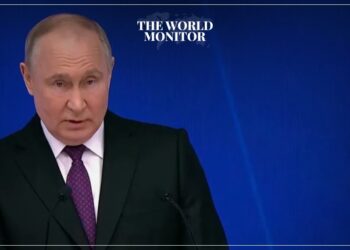Pope Francis criticised the tightening of immigration laws, calling for a “global governance of migration” based on humanitarian principles. In his weekly general audience on Wednesday, the Pope also emphasized the need to combat human traffickers.
The head of the Catholic Church has repeatedly expressed sorrow over the plight of many people forced to flee their countries, whether due to violence or severely poor living conditions.
“The Mediterranean has become a cemetery,” the Pope lamented, adding that most of these deaths could have been prevented. However, controlling migration through stricter laws is not the right approach, according to the Pope.
He further stated, “This cannot be achieved through stricter laws, nor by militarizing borders, nor by preventing their entry.”
Instead, the Pope called for “safe and organized pathways” for migration and stressed, “What we need is global governance of migration, based on justice, fraternity, and solidarity.”
Illegal immigration remains a complex and significant issue across Europe. In recent years, Europe has seen fluctuating patterns of irregular migration, with notable increases in certain areas. For instance, in 2023, Germany saw a 33% rise in illegal border crossings, primarily from Syria, Turkey, and Afghanistan. This trend reflects broader pressures across the EU, where unauthorized migration is driven by a combination of conflict, economic instability, and the actions of human traffickers.
As of 2024, there has been a notable decrease in irregular border crossings across Europe, partly due to enhanced border controls and agreements with third countries. However, the overall number of migrants under temporary protection, particularly from Ukraine, has surged, with over 4.3 million people seeking refuge in the EU.
Despite efforts to manage these challenges, irregular migration continues to pose significant political and social dilemmas for the EU, prompting calls for more comprehensive and humane migration policies. The European Union has been working on reforms to its migration and asylum policies, aiming to balance security concerns with humanitarian obligations.
The situation remains dynamic, with ongoing debates about how best to manage migration in a way that respects human rights while addressing the legitimate security concerns of EU member states.






